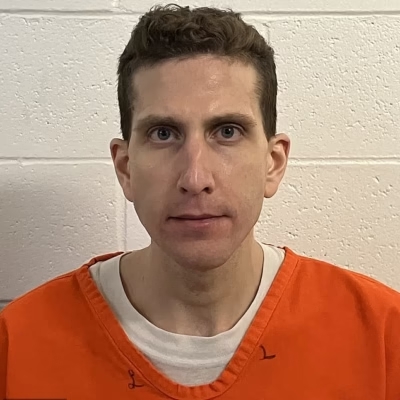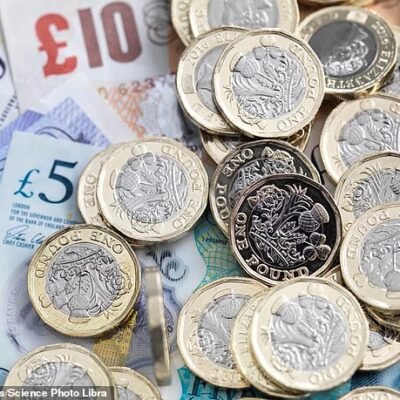Closing arguments began Tuesday in the weekslong criminal trial of Donald J. Trump, the first president to face prosecution in American history, in a case that stems from a hush-money deal to a porn star who said she had sex with him.
Mr. Trump faces several legal challenges related to his business and political activities, and the one underway in New York City was brought by the Manhattan district attorney’s office. It could be the only case against him to go to trial before the 2024 presidential election.
The trial began in April and will be in the jurors’ hands this week, following weeks of salacious testimony about sex scandals and granular detail about corporate documents. Mr. Trump faces 34 felony counts of falsifying business records in the first degree, all tied to the former president’s role in a hush-money payment to the porn star, Stormy Daniels.
The charges do not involve the hush deal itself but Mr. Trump’s reimbursements for it to his former fixer, Michael D. Cohen, who gave $130,000 to Ms. Daniels to buy her silence days before the 2016 election. Prosecutors said that the repayments were deliberately mislabeled as “legal expenses” in business ledgers to hide the deal.
If convicted, Mr. Trump faces probation or up to four years in prison.
That payoff was not the only such deal that prosecutors highlighted with the 20 witnesses they called to the stand. Prosecutors claimed that Mr. Trump had orchestrated a broader scheme to influence the 2016 presidential election by directing his allies to purchase damaging stories about him to keep them under wraps. The defense called two witnesses.
Mr. Trump has denied all wrongdoing. He also assailed the district attorney, Alvin L. Bragg, for bringing the charges, accusing him of carrying out a politically motivated witch hunt, and he has attacked the judge, Juan M. Merchan.
Catch up on the trial here.
The accusations
The charges trace to the $130,000 payment to Ms. Daniels, which Mr. Cohen testified he had made at Mr. Trump’s direction. Ms. Daniels also testified about her account of having sex with Mr. Trump, saying it happened in 2006 in Nevada after they met at a celebrity golf tournament.
While serving as the commander in chief a decade later, Mr. Trump reimbursed Mr. Cohen, and the way he did so constituted fraud, prosecutors said. In internal records, Mr. Trump’s company classified the repayment as legal expenses, citing a retainer agreement. Yet there were no such expenses, the prosecutors say, and the retainer agreement was fictional, too. Mr. Trump’s defense team has said there was a valid oral retainer that had not been recorded on paper.
Those records underpin the 34 counts of falsifying business records: 11 counts involve the checks, 11 center on monthly invoices Mr. Cohen submitted to the company and 12 involve entries in the general ledger for Mr. Trump’s trust.
Additional hush payments
Mr. Bragg’s office linked Mr. Trump to three hush-money deals that prosecutors argued were made to bury negative news during his presidential campaign. Two of the deals were paid for by The National Enquirer, which helped promote Mr. Trump during the campaign while also suppressing negative headlines about him, its former publisher testified.
The first involved the tabloid’s payment of $30,000 to a former Trump Tower doorman who claimed to know that Mr. Trump had fathered a child out of wedlock, a rumor that turned out to be false.
The Enquirer also paid Karen McDougal, Playboy’s Playmate of the Year in 1998 who, during the 2016 campaign, wanted to sell her story of an affair with Mr. Trump beginning in 2006. She reached a $150,000 agreement with the tabloid, which bought the rights to her story to suppress it — a practice known as “catch and kill.”
The felony charges
Falsifying business records in New York State can be a misdemeanor, but it can become a felony if prosecutors prove that the records were falsified to conceal another crime.
Mr. Bragg has accused Mr. Trump of concealing a federal campaign finance violation and a state election-law crime. Those, prosecutors say, involve the hush-money payoffs to Ms. Daniels and Ms. McDougal. The payments, they argue, were illegal donations to Mr. Trump’s campaign.
Prosecutors did not have to charge Mr. Trump with a secondary crime or prove that he committed it, but they had to show to the jurors that there was intent to “commit or conceal” a second crime.
The witnesses
Much of Mr. Cohen’s testimony was corroborated by other witnesses, including former White House aides such as Hope Hicks.
The defense argued that Mr. Trump was a victim of extortion, led by Mr. Cohen. His lawyers portrayed Mr. Cohen as a Trump-hating liar, pointing out that he and the former president had a falling-out years ago.
The defense’s main witness was a lawyer linked to Mr. Trump’s circle, Robert J. Costello, who in 2018 had acted as Mr. Cohen’s back channel to Mr. Trump’s legal team. Defense lawyers used his fractious testimony to paint Mr. Cohen as untrustworthy.
Mr. Trump did not take the stand.
Justice Merchan
Justice Merchan is a veteran judge known as a no-nonsense, drama-averse jurist. The judge issued a gag order to protect prosecutors, witnesses and his own family from Mr. Trump’s vitriol. And yet the former president continued to post articles with pictures of the justice’s daughter.
In the trial’s early days, Justice Merchan fined Mr. Trump $10,000 for 10 violations of that order.
The maximum sentence
The charges against Mr. Trump are all Class E felonies, the lowest category of felonies in New York. Each count carries a maximum prison sentence of four years. Justice Merchan has made it clear that he takes white-collar crime seriously and could throw Mr. Trump behind bars.
But nothing in the law requires Justice Merchan to imprison Mr. Trump if he’s convicted by a jury. The judge could instead sentence him to probation.
Mr. Trump would likely appeal a guilty verdict, which could take months or longer.





